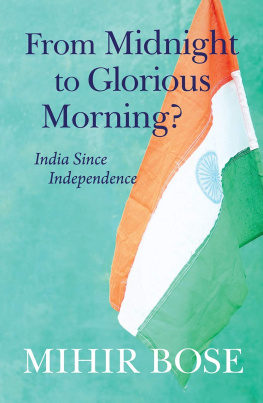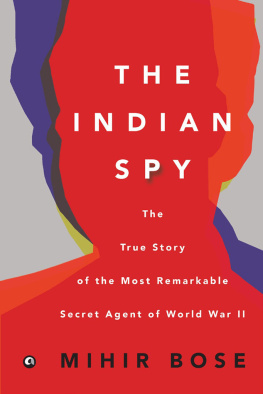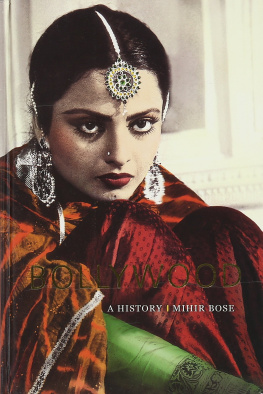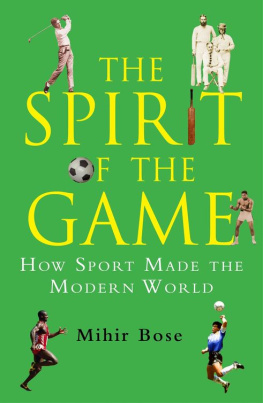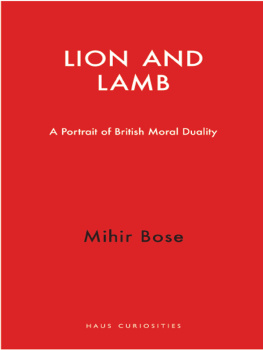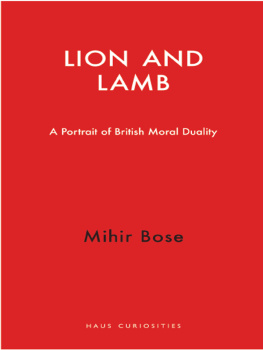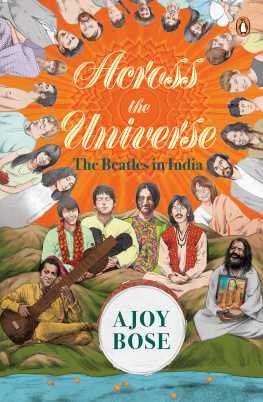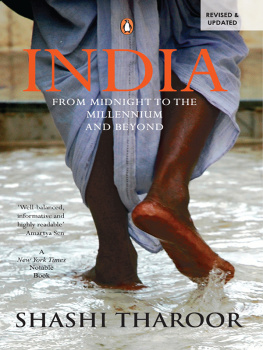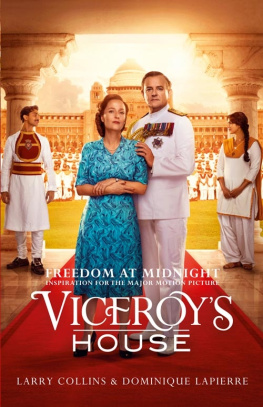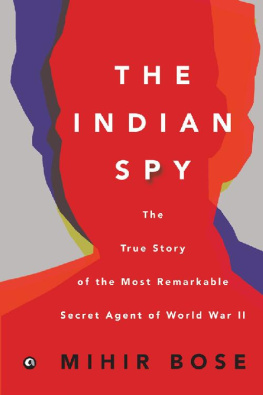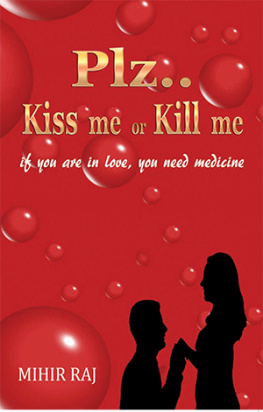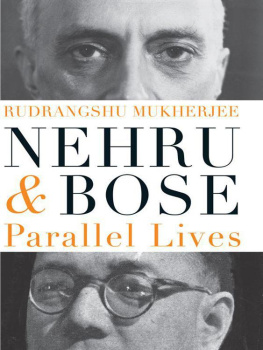Mihir Bose - From Midnight to Glorious Morning?: India Since Independence
Here you can read online Mihir Bose - From Midnight to Glorious Morning?: India Since Independence full text of the book (entire story) in english for free. Download pdf and epub, get meaning, cover and reviews about this ebook. year: 2018, publisher: Haus Publishing, genre: Politics. Description of the work, (preface) as well as reviews are available. Best literature library LitArk.com created for fans of good reading and offers a wide selection of genres:
Romance novel
Science fiction
Adventure
Detective
Science
History
Home and family
Prose
Art
Politics
Computer
Non-fiction
Religion
Business
Children
Humor
Choose a favorite category and find really read worthwhile books. Enjoy immersion in the world of imagination, feel the emotions of the characters or learn something new for yourself, make an fascinating discovery.
- Book:From Midnight to Glorious Morning?: India Since Independence
- Author:
- Publisher:Haus Publishing
- Genre:
- Year:2018
- Rating:5 / 5
- Favourites:Add to favourites
- Your mark:
- 100
- 1
- 2
- 3
- 4
- 5
From Midnight to Glorious Morning?: India Since Independence: summary, description and annotation
We offer to read an annotation, description, summary or preface (depends on what the author of the book "From Midnight to Glorious Morning?: India Since Independence" wrote himself). If you haven't found the necessary information about the book — write in the comments, we will try to find it.
From Midnight to Glorious Morning?: India Since Independence — read online for free the complete book (whole text) full work
Below is the text of the book, divided by pages. System saving the place of the last page read, allows you to conveniently read the book "From Midnight to Glorious Morning?: India Since Independence" online for free, without having to search again every time where you left off. Put a bookmark, and you can go to the page where you finished reading at any time.
Font size:
Interval:
Bookmark:
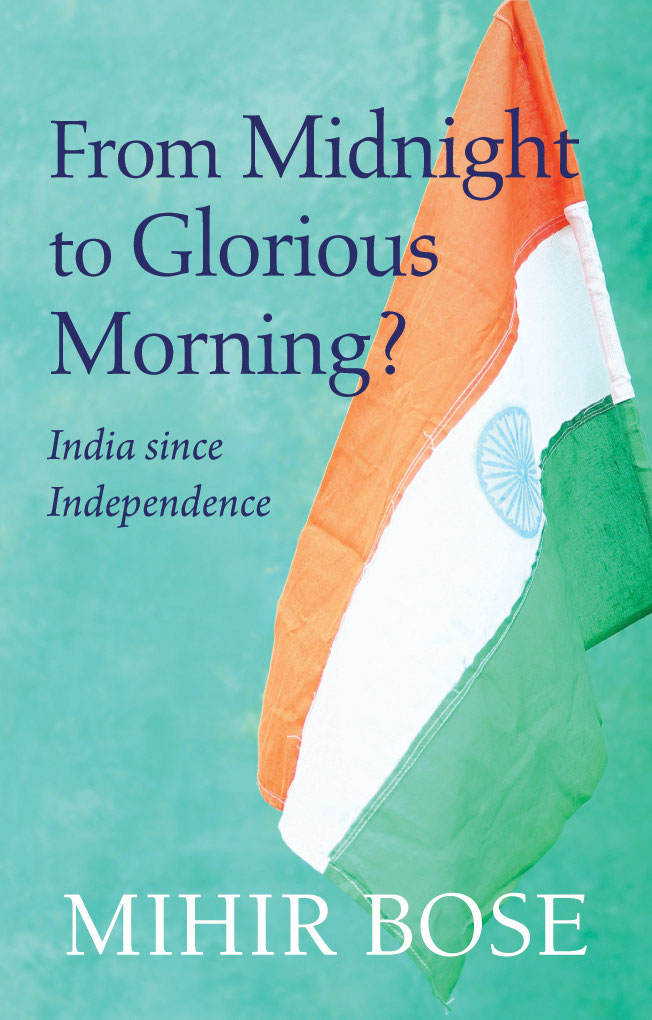

FROM MIDNIGHT TO GLORIOUS MORNING?
FROM MIDNIGHT TO GLORIOUS MORNING?
India Since Independence
Mihir Bose

Published in 2017 by
HAUS PUBLISHING LTD
70 Cadogan Place
London SWIX 9AH
www.hauspublishing.com
First published in India by Vikas Publishing House Pvt Ltd. as
From Midnight to Glorious Morning? by Mihir Bose
Copyright Mihir Bose, 2017
The moral right of the author has been asserted
A CIP catalogue record for this book is available from the British Library
ISBN: 978-1-910376-69-0
eISBN: 978-1-910376-70-6
Typeset in Garamond by MacGuru Ltd
All rights reserved
To Derek and Susanna, for being such wonderful friends
| 1947 | 2017 | |
| Area* | 732,000 square miles | 1,269,220 square miles |
| Population | 269 million | 1.3 billion |
| Life Expectancy | 32.4 | 68.3 (male 66.9, female 69.9) |
| Per Capita Income [Purchasing Power] | 20 | 5,579 |
| Gross Domestic Product | 130 million | 7.4 trillion |
| Total Indian Government Revenue | 210.77 million | 138.24 billion |
| Imports | 516 million | 287 billion |
| Exports | 349 million | 215 billion |
| Annual Car and truck Production | 21800 | 23.96 million |
| Passengers Carried by Air | 260,000 | 100 million |
| Villages electrified | 1500 | 5,79,012 (97% of villages) |
| Literacy rate | 12% | 74% |
| Religion** | Hindus 84.1% | Hindus 79.8% |
| Muslims 9.8% | Muslims 14.2% | |
| Christians 2.3% | Christians 2.3% | |
| Sikhs 1.9% | Sikhs 1.7% | |
| Buddhists 0.7% | Buddhists 0.7% | |
| Jains 0.5% | Jains 0.4% | |
| others 0.4% | others 0.9% |
* The area in 1947 represented the part of British India the new Indian state had inherited and excludes the princely states whose area was 482,100 square miles. 2017 figures includes areas disputed by Pakistan and China.
The 1947 figure was the population of British India, the total population combining the princely states was 347 million.
Ranked 3rd after China and USA on Purchasing Power Parity basis.
Ranked 5th in the world.
** The figures shown for 1947 are actually from the 1951 census when the total population had risen to 361 million.
The 2017 figures are based on the 2011 census.
In 1947 the exchange was Rs. 13 rupees to 1.00.
In 2017 the exchange is Rs. 83 to 1.00.
In his Booker prize-winning novel, Midnights Children , Salman Rush-dies hero Saleem Sinai says, I was born [on] August 15th, 1947 On the stroke of midnight at the precise moment of Indias arrival at independence, I tumbled forth into the world I had been mysteriously handcuffed to history, my destinies indissolubly chained to those of my country. Thus was coined the phrase midnights children to describe those born as India regained its freedom. Unlike Saleem Sinai, I was not born at the precise midnight hour and I do not feel I am handcuffed to Indias destiny. But I definitely qualify as part of the midnight generation as I was seven months and three days old by the time the British left India, the first generation of free Indians for 200 years. I realised what a privilege this was when, many years later, I had the good fortune to have coffee with Nelson Mandela at his home in Soweto, shortly after he walked free from twenty-seven years of incarceration in South African prisons.
During our chat, Mandela told me how, in January 1949, he and his friends went to the Durban cricket ground to watch South Africa play a cricket Test match against Australia. Under apartheid, black spectators were confined to a caged section of the ground so they could not mingle with white folks. Like all the blacks then, Mandela and his friends wanted Australia to win, seeing this as a defeat, however meaningless, for their white oppressors. Mandelas wishes were fulfilled as the Australian batsman, Neil Harvey, played brilliantly to conjure up a wonderful, totally unexpected, Australian victory. But, overjoyed as Mandela and his friends were, they knew they had to contain their joy.
When I asked him whether he congratulated Harvey, perhaps got his autograph, Mandela recoiled in horror and said, No, no we could not do that. We could not approach him. Had we tried, we would have been thrown out, maybe even jailed. Seven years later, Harvey came with the Australian team to India. And, at the Brabourne Stadium in my home town of Bombay, as it was called then, he played another great innings. In the process, he destroyed the bowling of my boyhood hero, Subash Gupte, one of the finest leg spinners in the history of cricket. But, while he broke my heart no young boy likes to see his hero humiliated I could not help but admire Harveys batting and had no problems approaching him and getting his autograph. Mandelas and my contrasting experiences show what freedom means. I, a nine-year-old boy, had greater freedom than a man who was thirty years old. Thanks to the sacrifices of the generation that preceded me, I was born free and did not have to worry about showing my enthusiasm for players on a cricket field. It was another forty-five years before Mandela and his fellow non-whites were free to do what comes naturally to all sporting fans.
Indias midnight hour saw Jawaharlal Nehru, the Harrow-and Cambridge-educated barrister who became Indias first Prime Minister, make one of the greatest speeches of the twentieth century in which he said, Long years ago we made a tryst with destiny, and now the time comes when we shall redeem our pledge, not wholly or in full measure, but very substantially. At the stroke of midnight hour, when the world sleeps, India will awake to life and freedom. Then, in keeping with what Indias freedom fighters had always said, he saw wresting control back from the British as a step, an opening of opportunity, to the greater triumphs and achievements that await us. Are we brave enough and wise enough to grasp this opportunity and accept the challenge of the future?
Now that seventy years have passed since those words were spoken, it is appropriate to ask: has India managed to grasp its opportunity? I lived the first twenty-one years of my life in India, seventeen of them under the prime ministership of Nehru, the countrys longest-serving Prime Minister.
Looking back, it is extraordinary that our elders made little of the fact that the army did not intervene to take over power in what had become the worlds largest democracy, unlike what happened in almost all the other former European colonies. Despite the fact that the vast majority of the electorate could neither read nor write, they still went in their millions to vote. No mean achievement also given that, during that era, mature European countries could not always manage change through the ballot box. In 1958, eleven years after India got freedom, the land of libert, galit, fraternit, saw General de Gaulle come to power through a coup that also ended the French Fourth Republic. Greece, the birthplace of democracy, was under army rule until 1974. Portugal emerged from nearly fifty years of dictatorial rule in 1976. And it was in 1977 that Spain returned to democratic ways, after more than forty years of the dictatorship imposed by Generalissimo Franco.
Font size:
Interval:
Bookmark:
Similar books «From Midnight to Glorious Morning?: India Since Independence»
Look at similar books to From Midnight to Glorious Morning?: India Since Independence. We have selected literature similar in name and meaning in the hope of providing readers with more options to find new, interesting, not yet read works.
Discussion, reviews of the book From Midnight to Glorious Morning?: India Since Independence and just readers' own opinions. Leave your comments, write what you think about the work, its meaning or the main characters. Specify what exactly you liked and what you didn't like, and why you think so.

